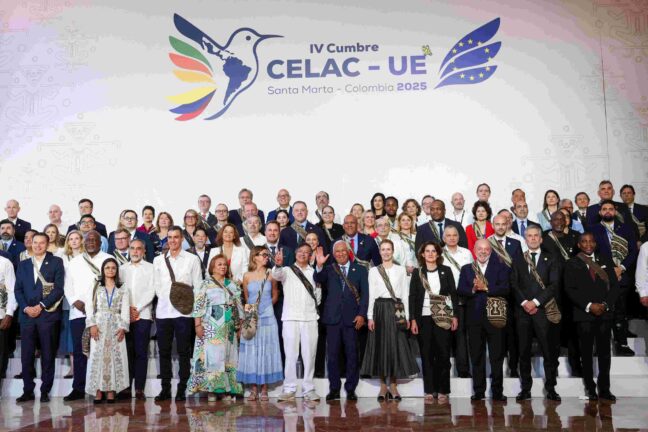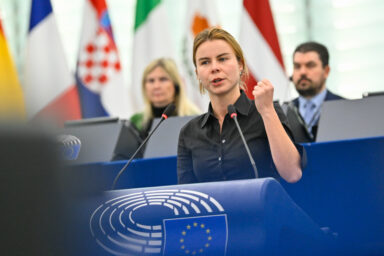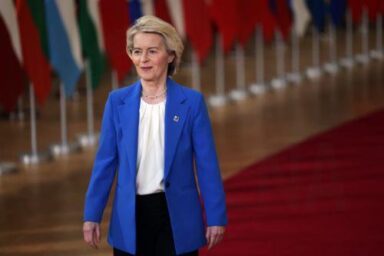At the CELAC-EU Summit in Colombia, leaders of the European Union and 33 countries from Latin America and the Caribbean renewed their commitment to defending a peaceful global order, rooted in democracy, social justice, respect of human rights, and fundamental freedoms. The common declaration mentions certain principles—such as the security of maritime routes and free trade—that contradict recent actions by the US.
The summit concluded with a political declaration and a roadmap setting out concrete actions on trade, climate, energy, digital transformation, food security, health, education, research and culture. The main points mentioned in the declaration include a ’shared vision for global governance’, ’stronger networks and smarter tech’, ’fair and mutually beneficial economic partnership’ and some other vague phrases. However, it does not shy away from thorny issues.
Indirect condemnation of US actions
The declaration states, among other things, that the EU-CELAC Summit participants “agreed on the importance of maritime security and regional stability in the Caribbean.” This is a clear response to the recent US bombing of ships suspected by Washington of transporting drugs—without the United States being directly mentioned in the declaration. “We reiterate our rejection of the use or threat of force and any action that is not in accordance with international law and the UN Charter,” the document reads.
Participants agree on the importance of maritime security and regional stability in the Caribbean. — EU-CELAC Summit declaration
The declaration also calls for open international trade. Also this statement is contradictory to the actions of US President Donald Trump—his tariff policy.
Reduce emissions, fast
The EU-CELAC summit emphasized the need for a significant and rapid reduction of greenhouse gas emissions (GHG) that contribute to global warming. That is another indirect criticism of the United States. Under President Donald Trump, US withdrew from the Paris Agreement on climate change and Washington did not send a high-level delegation to the UN COP30 climate summit, which begins on Monday, 10 November in the Brazilian city of Belém.
The current EU-CELAC summit is the fourth such summit; the last one took place in Brussels in July 2023 and was the first in eight years. Prior to that, the last EU-CELAC summit was held in 2015, and the first took place in 2013 in Santiago de Chile.
Relations within the Community of Latin American and Caribbean States (CELAC), which brings together 33 countries with a total population of around 600 million, have long been complicated by criticism from some member countries of the authoritarian governments in Venezuela and Nicaragua.











